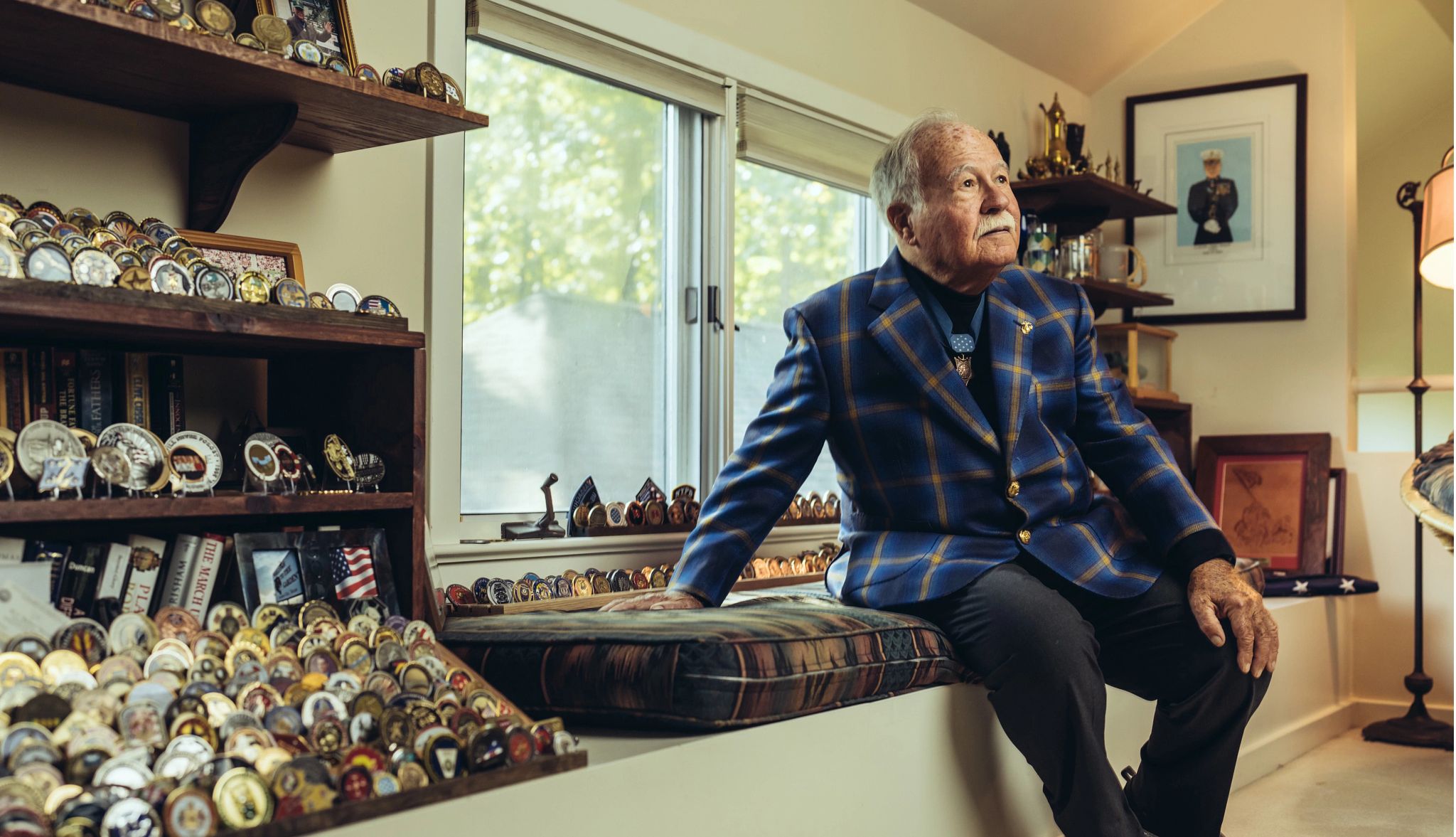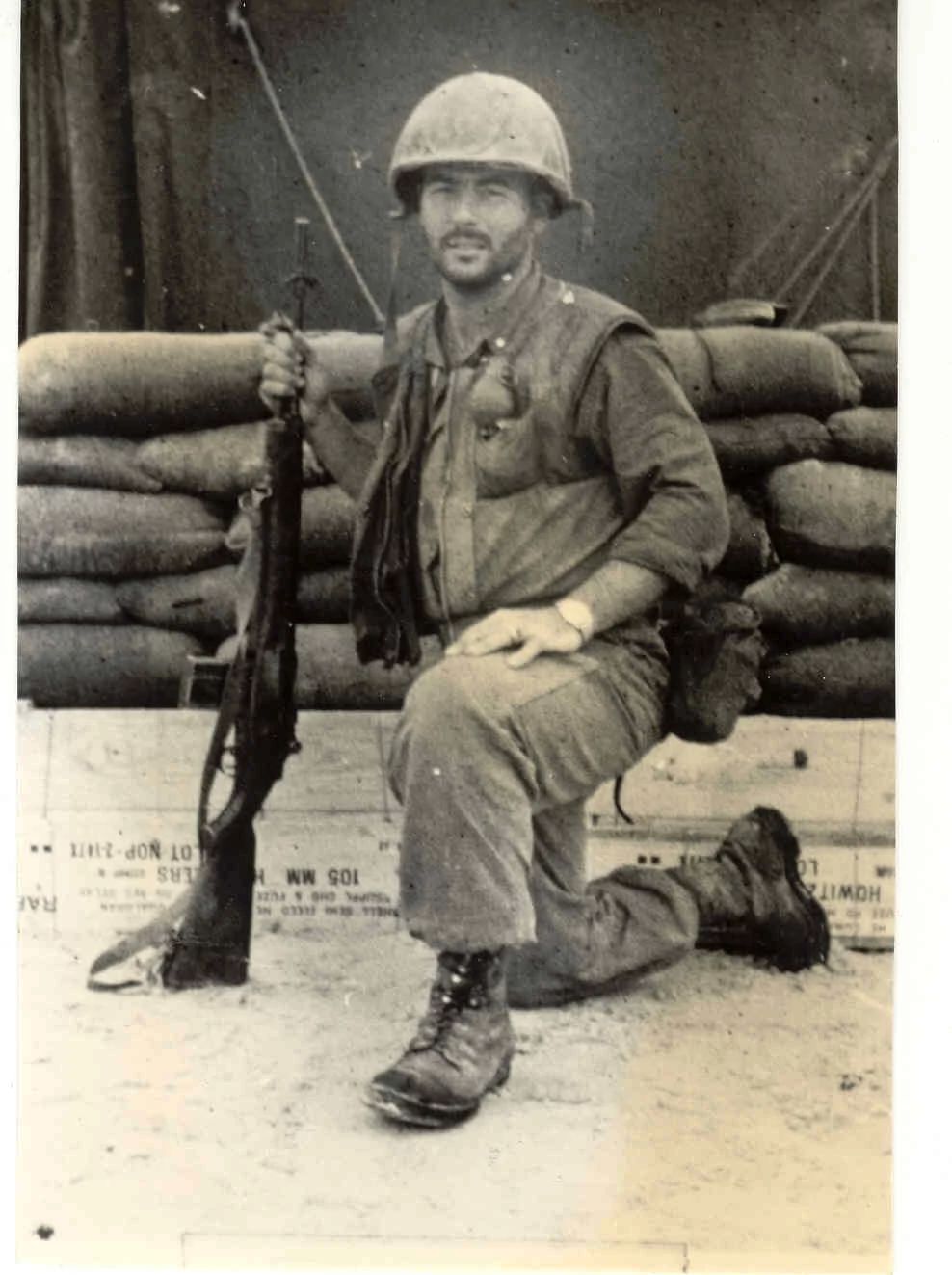AARP Hearing Center


There are few clubs more esteemed or exclusive than the living Medal of Honor recipients.
What has life been like after that day of courage amid death and terror in Vietnam, Iraq or Afghanistan? Every recipient has a different story. In this series we examine what came after that moment of extraordinary courage.
Harvey "Barney" Barnum Jr., 84, Virginia: Awarded the Congressional Medal of Honor on February 27, 1967.
In December 1965, I was attached to the 2nd Battalion, 9th Marines, as part of Operation Harvest Moon in the Que Son Mountains in Vietnam. On December 18, the enemy — well camouflaged and well dug-in — picked out our company commander. He had a map in his hand, and his radio operator was behind him. The enemy aimed, and all hell broke loose.
I hit the deck. This was the first time I’d ever been shot at. I looked up and all these young Marines were looking at me. I’d only been with this company for about four days, and they didn’t even know my name. But I had a lieutenant’s bar on my collar, and they knew: Officers give orders, and Marines follow.
More than an ambush
These young Marines were scared. Anyone who says they’re not scared when they’re getting shot at is lying. We realized that not only were we ambushed, we were nearly surrounded.


I ran out and picked up our captain and brought him back to a more secure area. He died in my arms. I realized the radio was out there, and I was going to need it. So I ran out and took the radio off the dead radio operator. I strapped it on and contacted our battalion commander. Ultimately, the battalion commander told me, “You have to come out of there. We can’t come get you.” The battalion was fully engaged in the village of Ky Phu. “We’re in one hell of a fight,” I was told. “So if you can’t come out yourself, you’re in there by yourself tonight.”
There was no future in that. If we stayed into the darkness, the enemy was going to finish us off. It was starting to get dark, and we had to move fast. I had engineers blow down some trees to clear a zone for helicopters to land. We put the dead and wounded on the helicopters. We had a medic named Doc Wes, and he was wounded. But he refused a shot of morphine, and he guided us on how to treat the wounded. He was the last one on the helicopter. As we put him on there, he was shot for the seventh time. Years later, I found out that he lived.
































































You Might Also Like
Green Beret Finally Receives the Highest Honor
Paris Davis, 85, was among the first Black soldiers in the Special ForcesWhy I Received the Medal of Honor Over 50 Years After Service
Cherokee veteran Dwight W. Birdwell on heroism in VietnamHow the Medal of Honor Changed My Life
The story behind ‘the real Forrest Gump,’ veteran Sammy Lee DavisRecommended for You